Anxiety
Darkness in a firefighters soul At first you don't notice, they are small shadows in your everyday routine. Day by day,...
Posted by URnotAlone.support on Friday, May 6, 2016
Some firefighters cope poorly, while others with far more horrific experiences remain symptom-free. Why would that be?
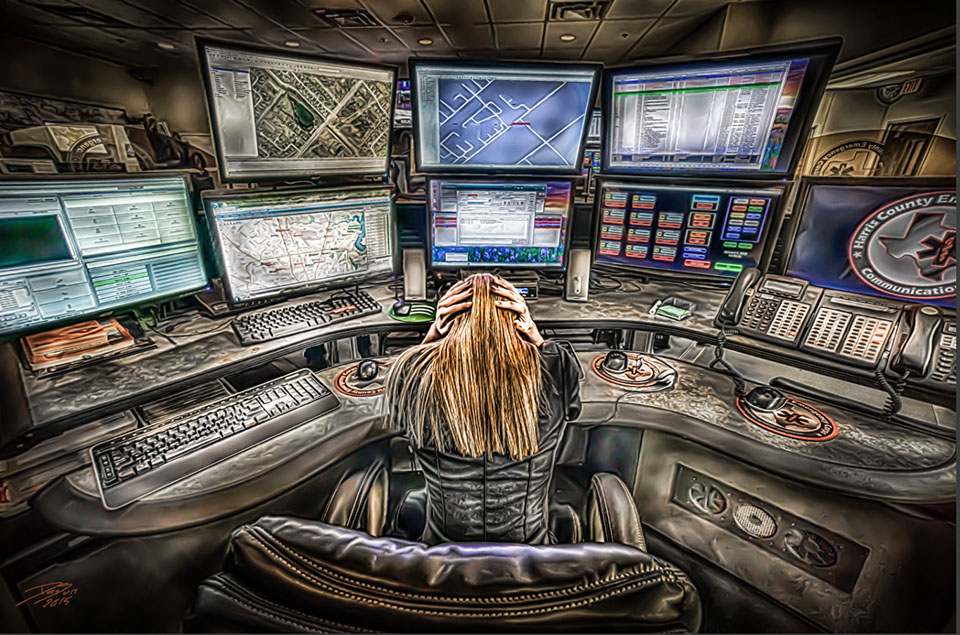
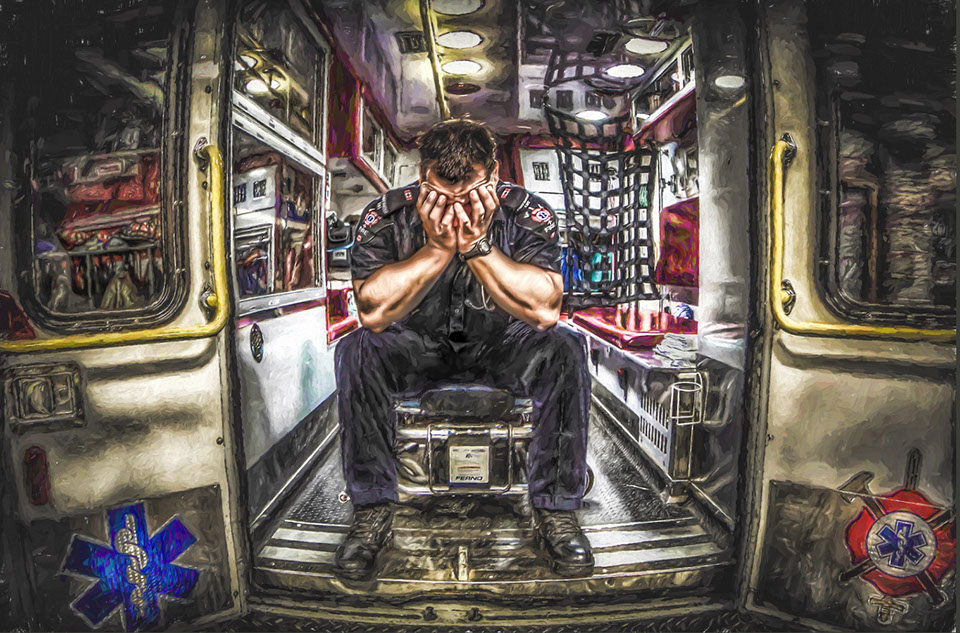
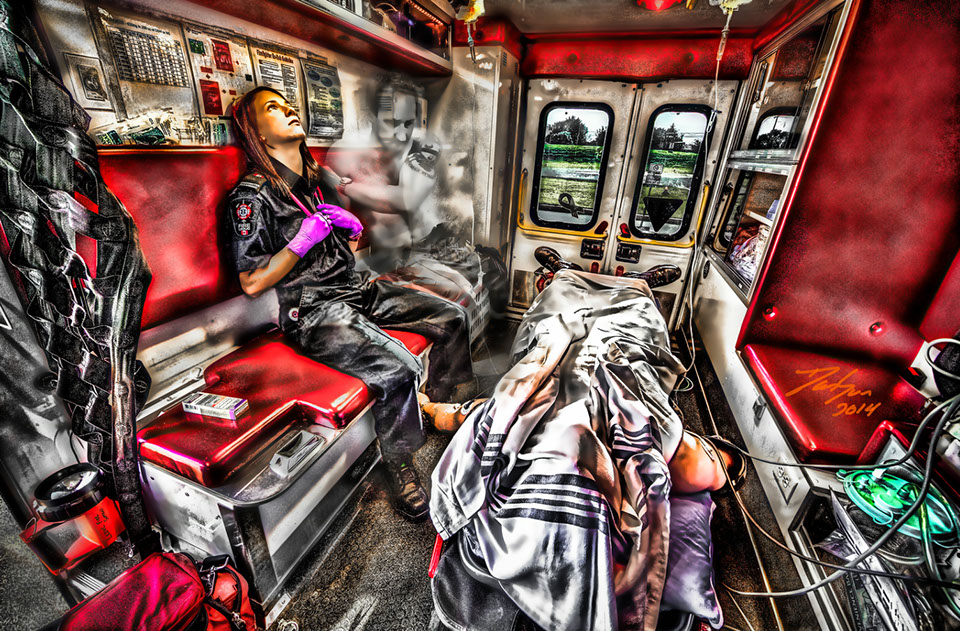

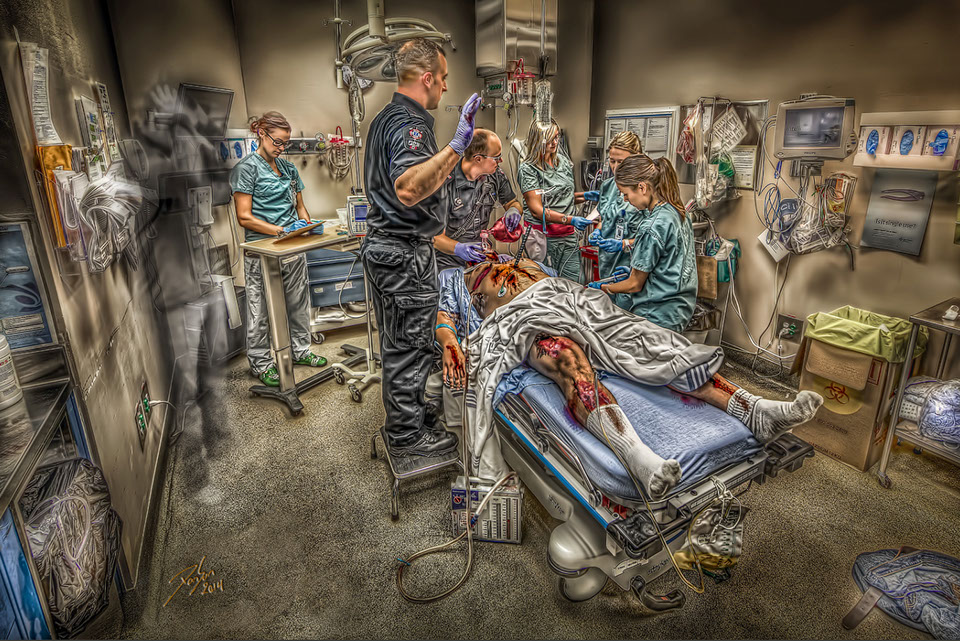
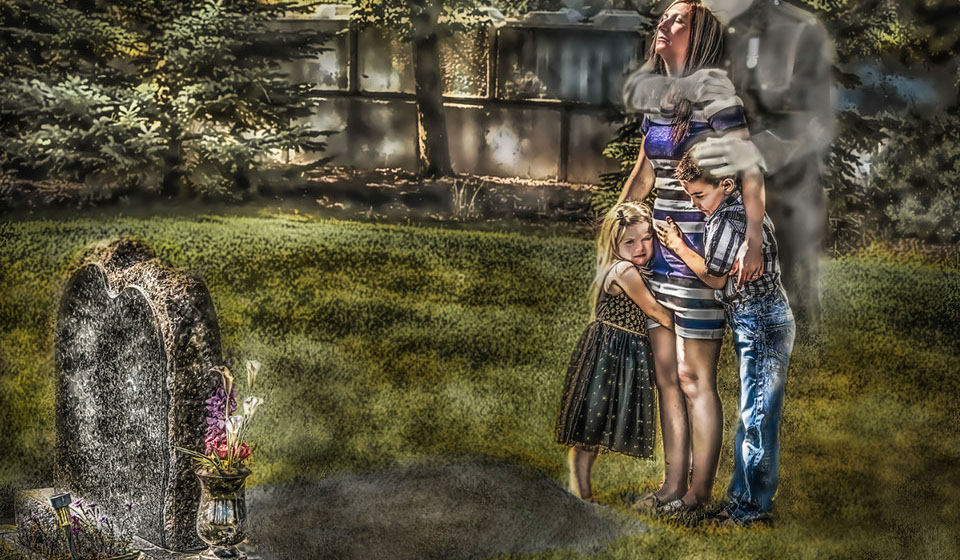
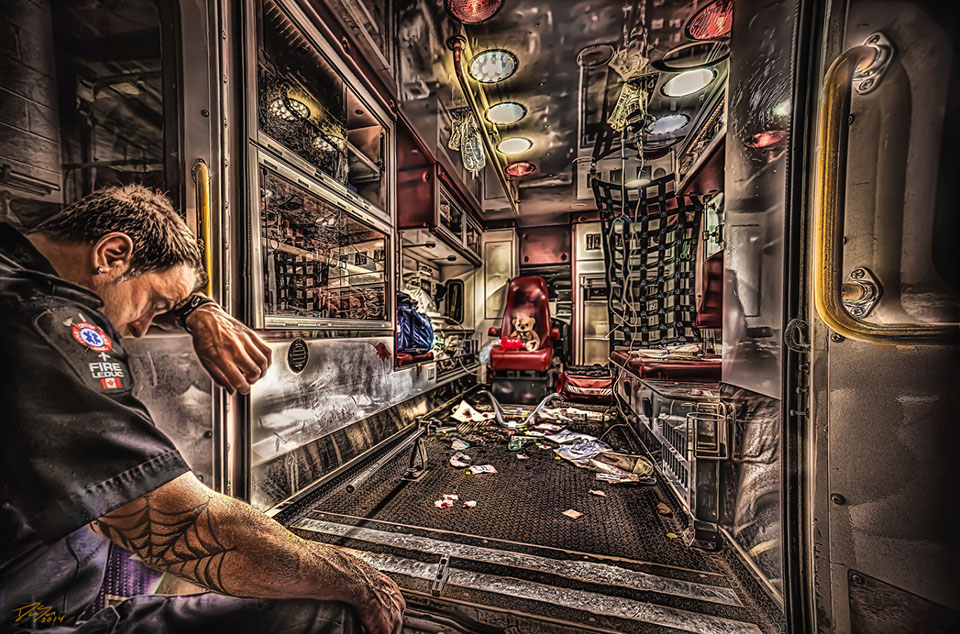
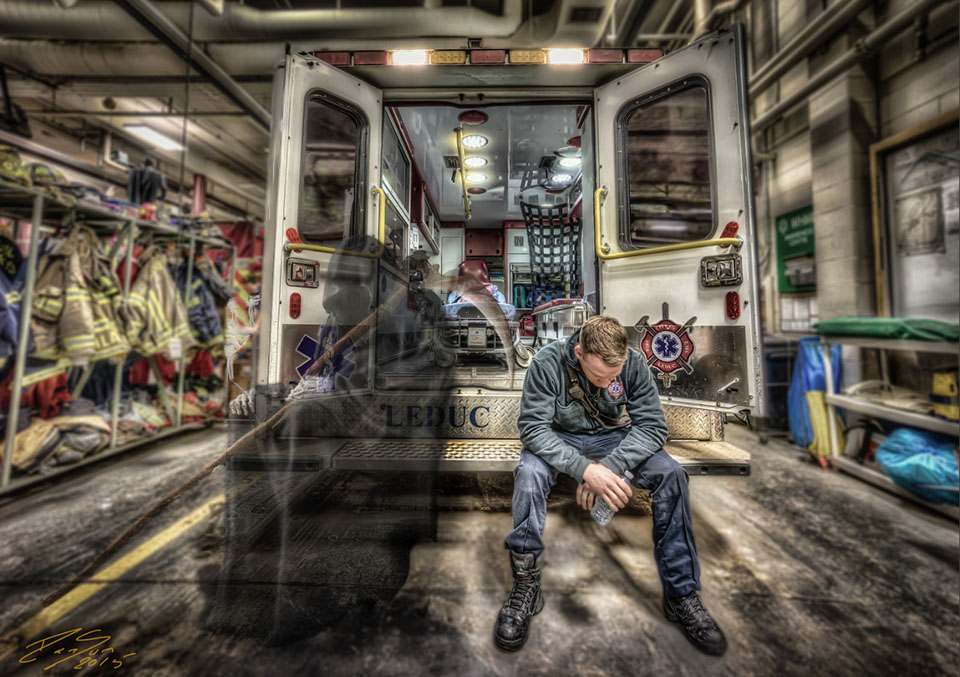
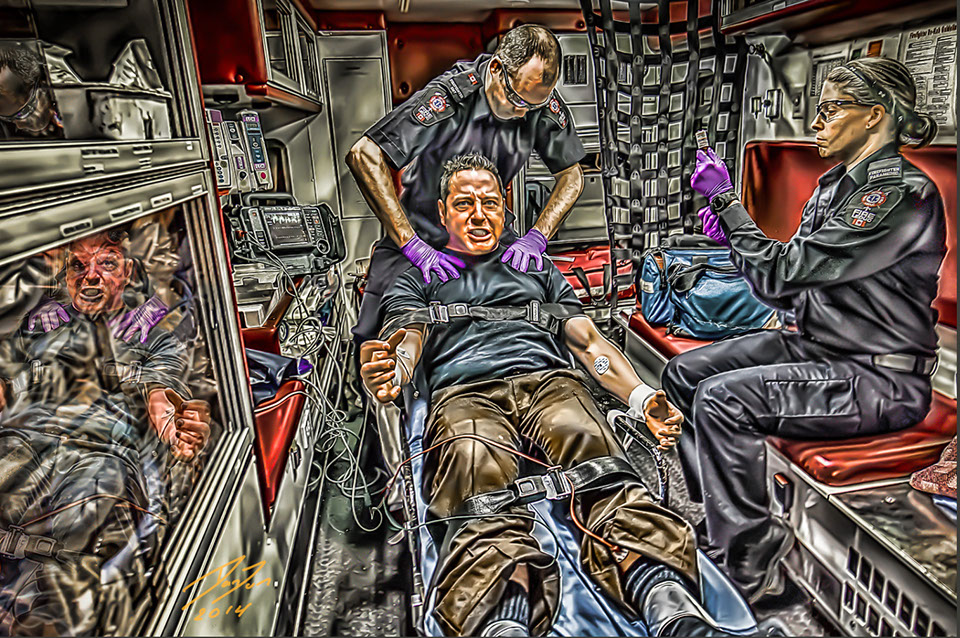
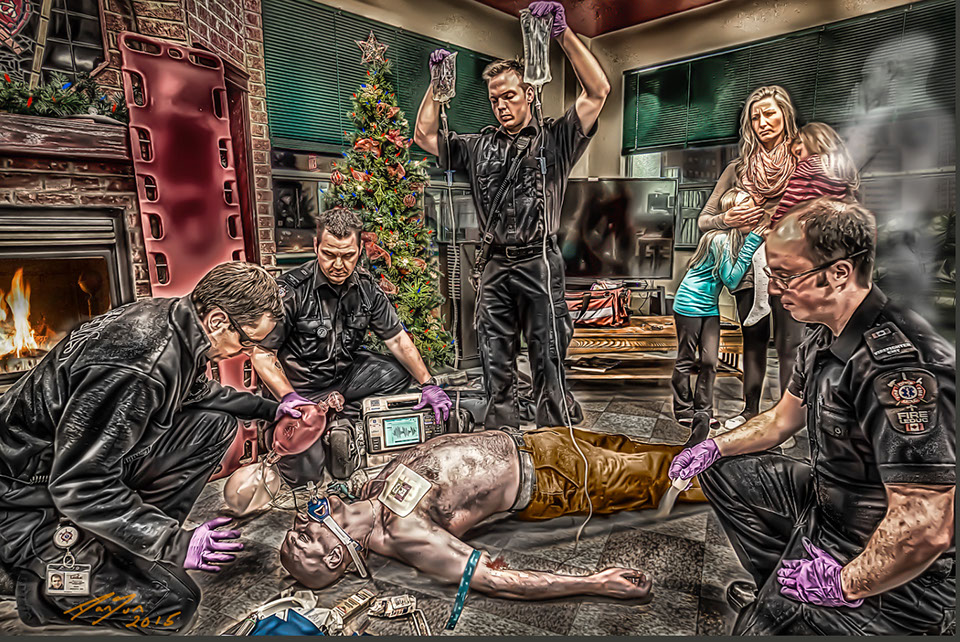
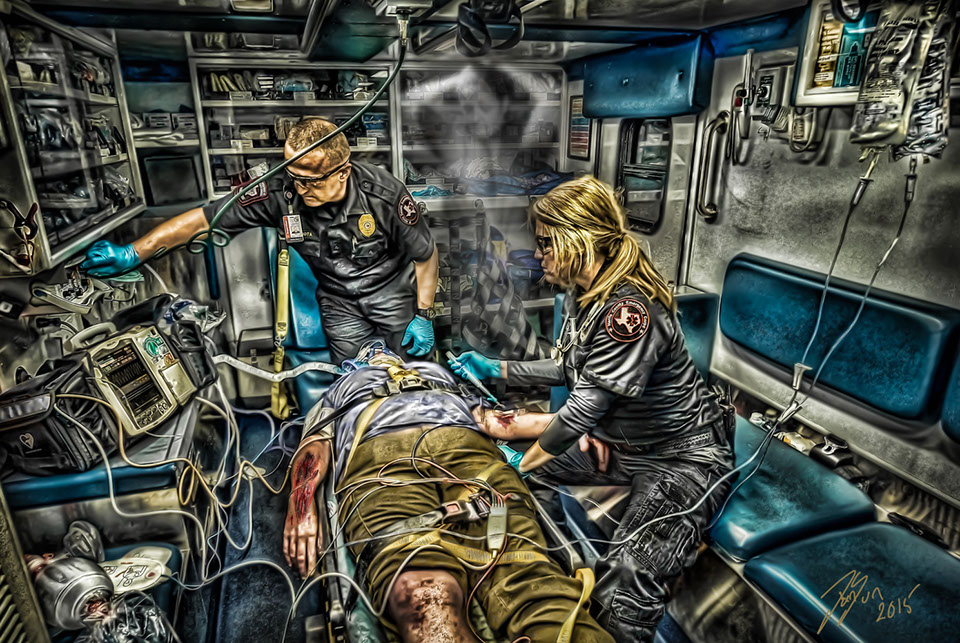
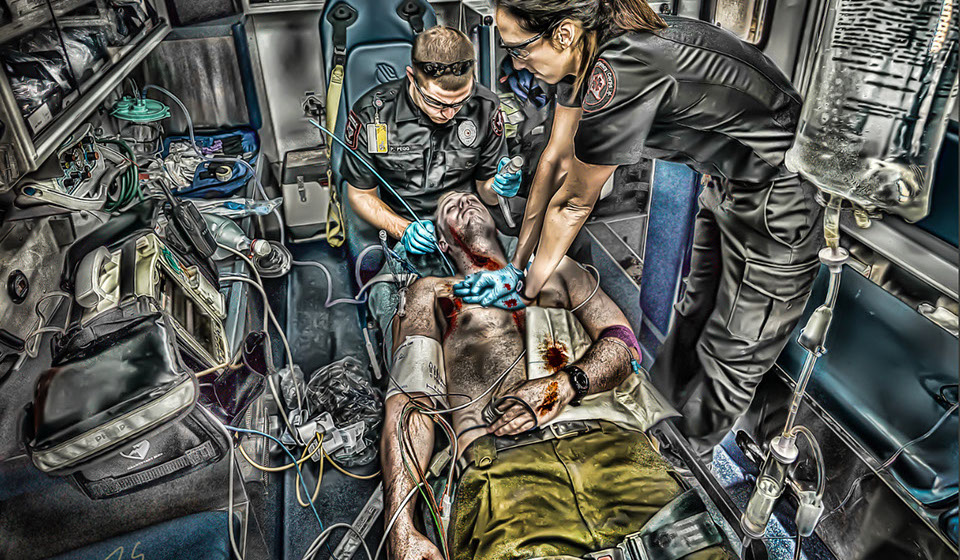
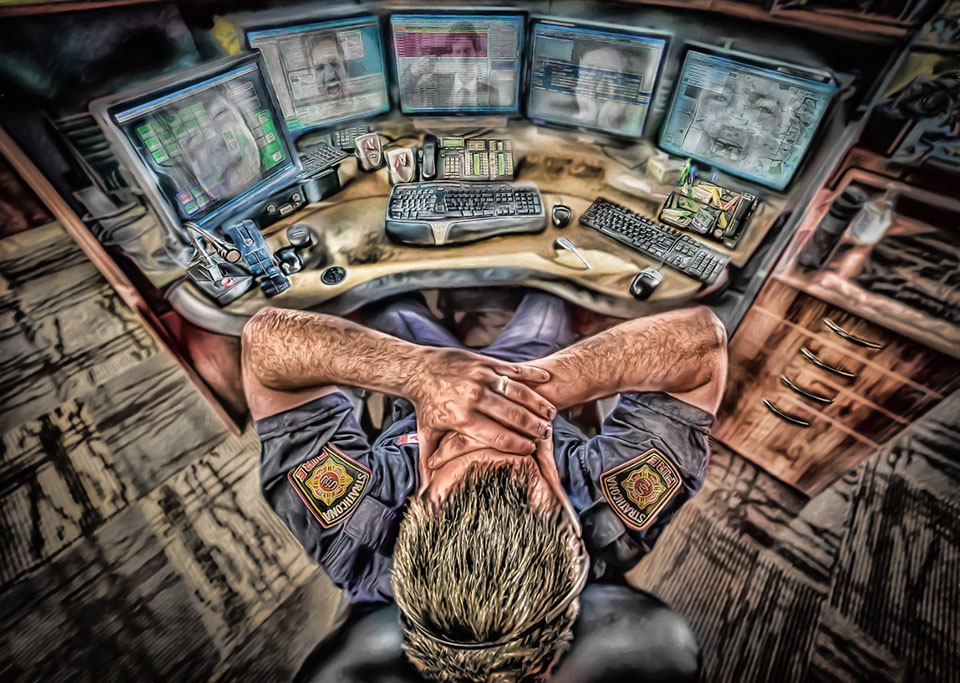
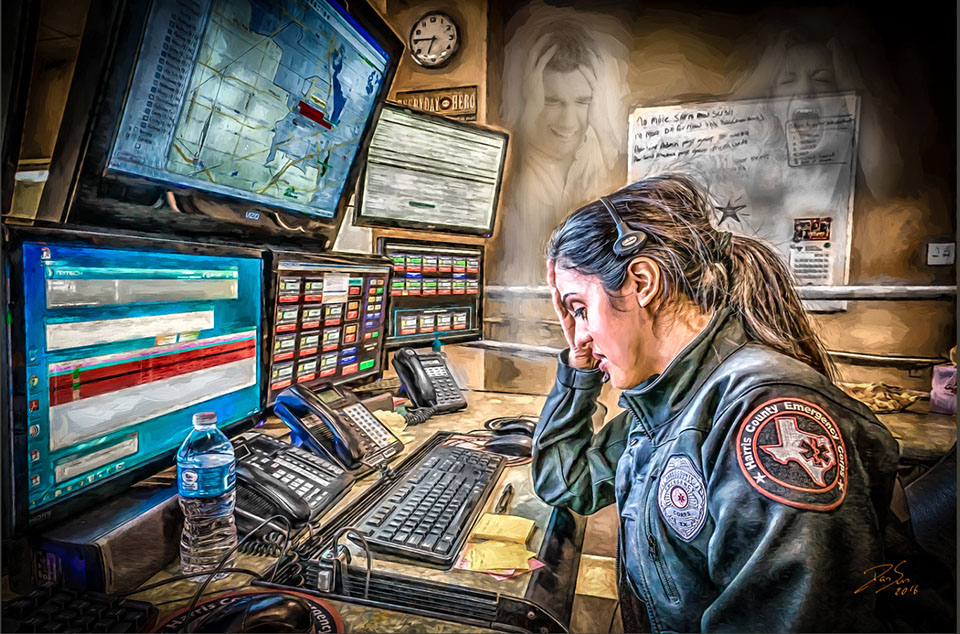
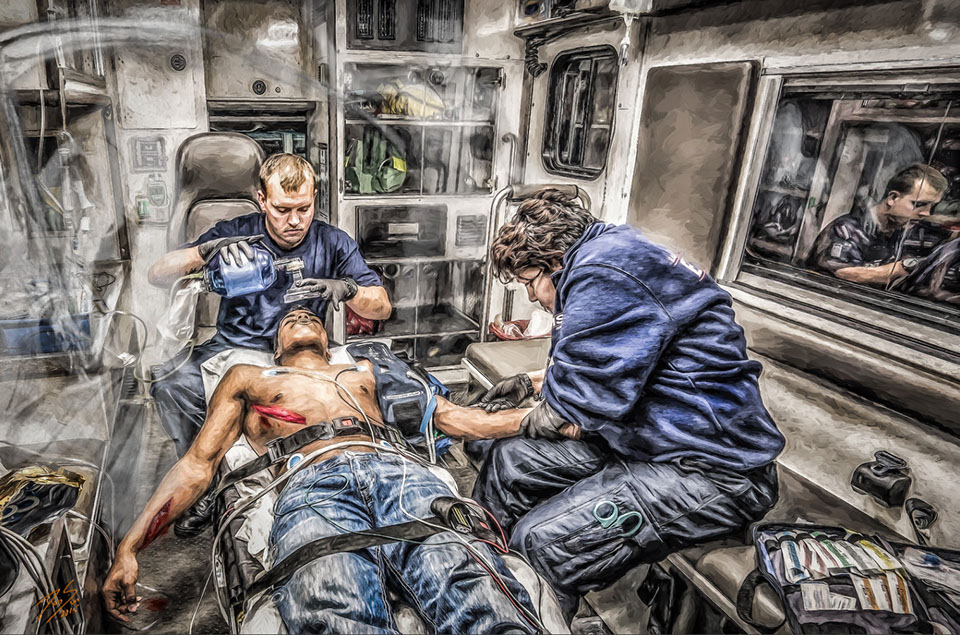
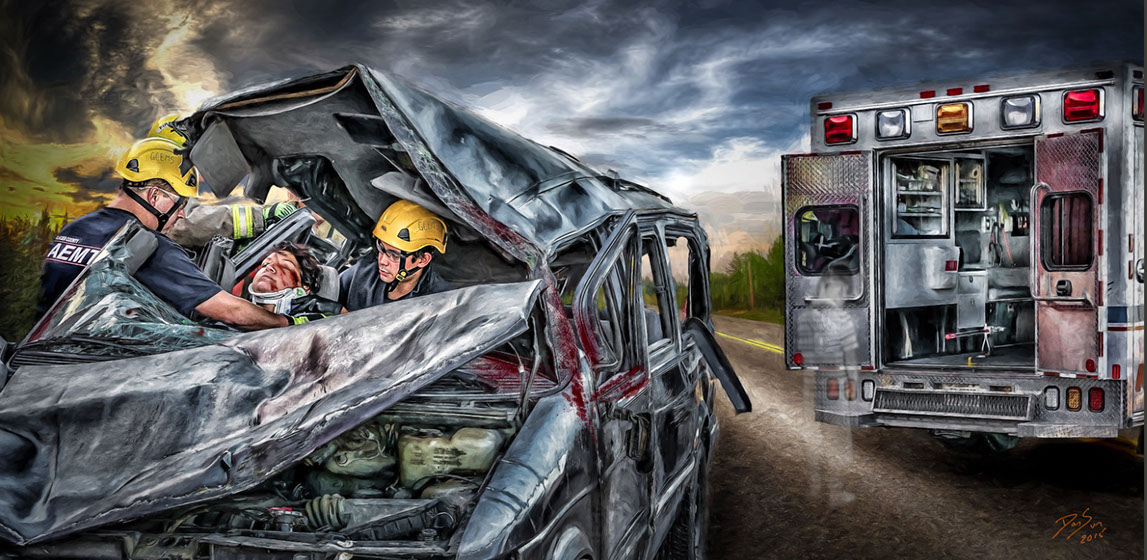
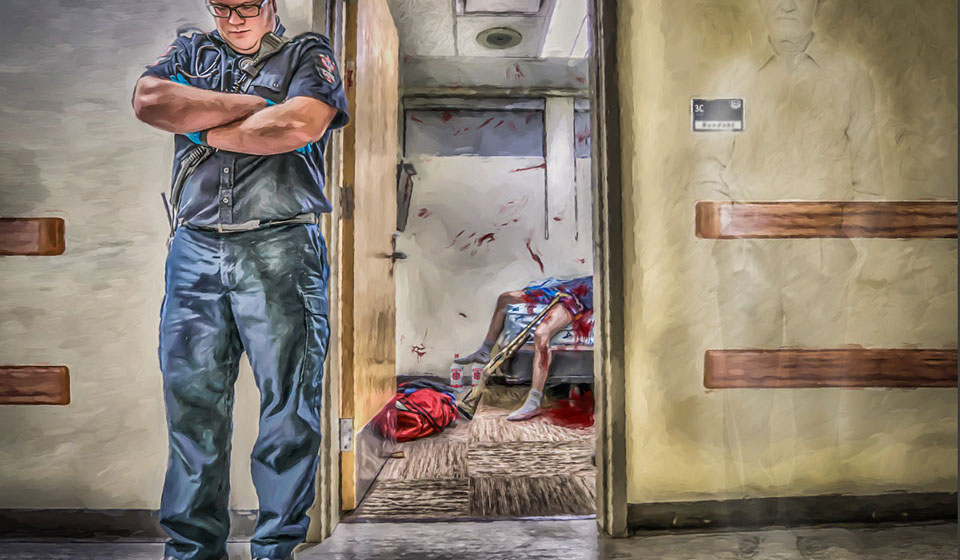
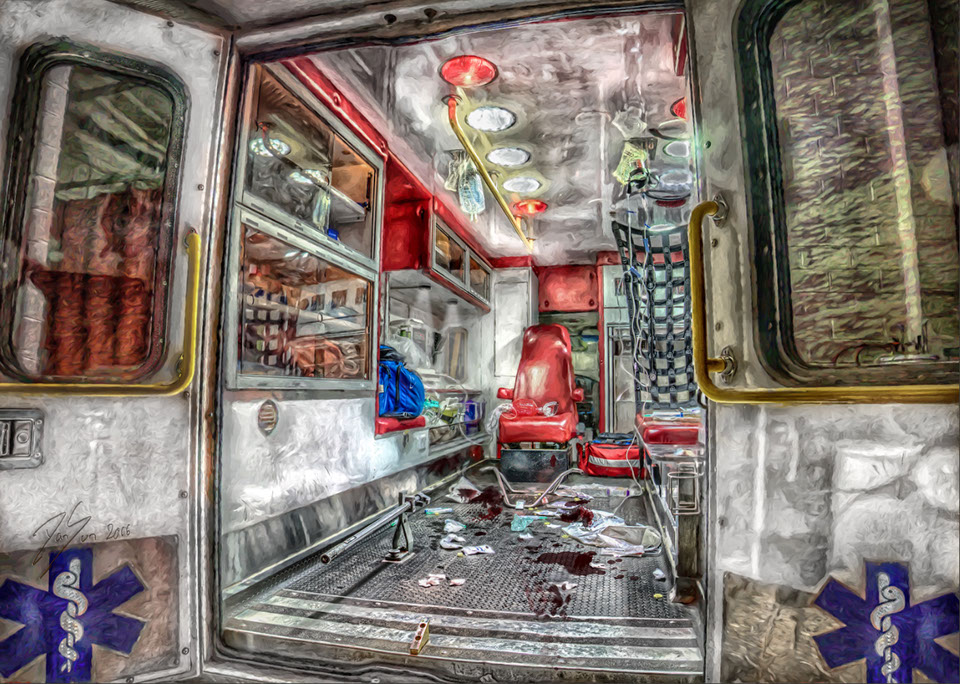
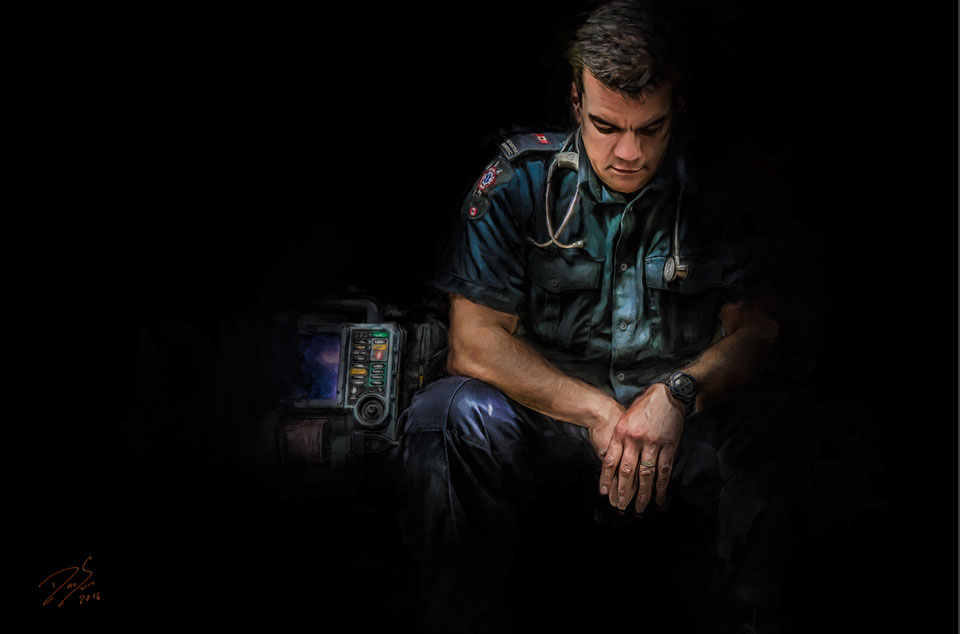
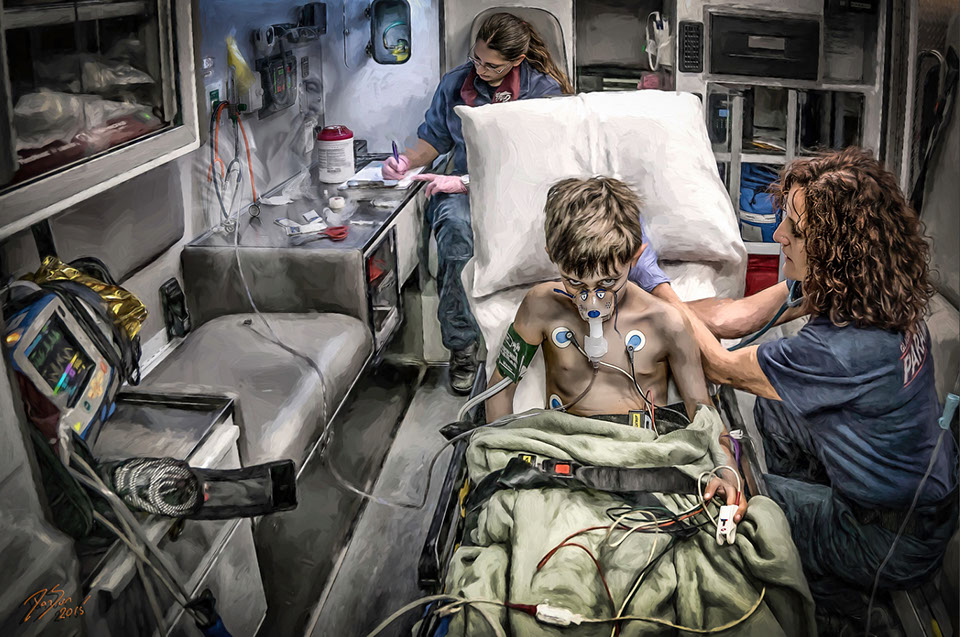
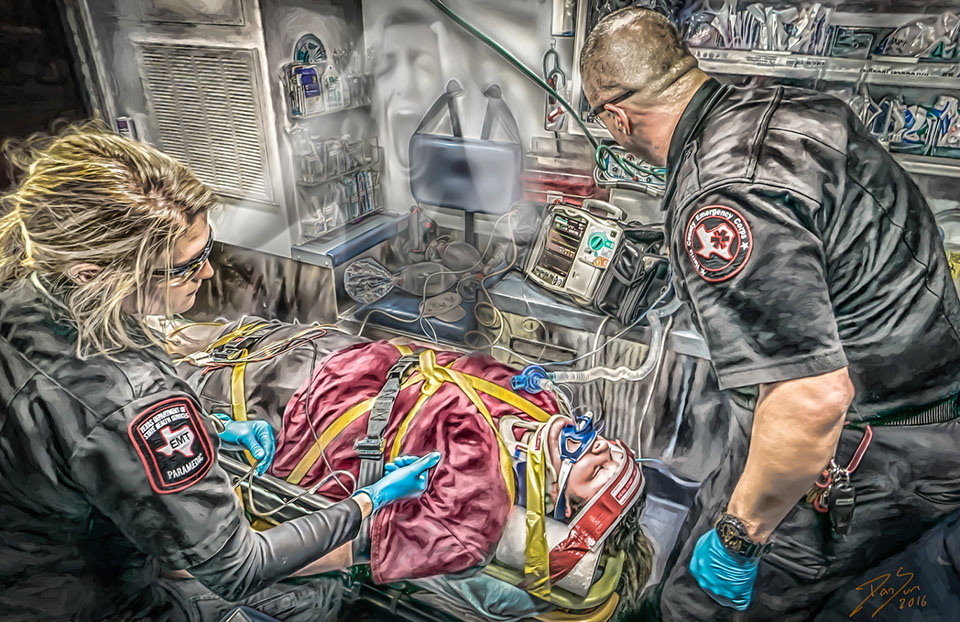
Anxiety; Feeling uptight; Stress; Tension; Jitters; Apprehension
- Anxiety can come from any situation or thought that makes you feel frustrated, angry, or during a time you feel you have no control of the situation.
- Anxiety is a feeling of apprehension, nervousness, or fear. The source of this uneasiness is not always known or recognized, which can add to the distress you feel.
- Anxiety can come from any situation or thought that makes you feel frustrated, angry, or during a time you feel you have no control of the situation.
Considerations
Having anxiety is a normal part of life. However, too much is harmful. It can be debilitating and get in the way of everyday life. Continued high levels of anxiety can set you up for general poor health, as well as physical and psychological illnesses like infection, heart disease, and depression. It can lead to unhealthy behaviors to help self medicate like overeating and abuse of alcohol or drugs
What are the symptoms?
- Abdominal pain (this may be the only symptom of anxiety, especially in a child)
- Diarrhea or frequent need to urinate
- Dizziness
- Dry mouth or difficulty swallowing
- Headaches
- Muscle tension
- Rapid breathing
- Rapid or irregular heart rate
- Sweating
- Twitching or trembling
- Sometimes other symptoms occur with anxiety:
- Decreased concentration
- Fatigue
- Irritability, including loss of your temper
- Sexual problems
- Sleeping difficulties, including nightmares
More severe symptoms that may need immediate treatment:
- You have crushing chest pain, especially with shortness of breath, dizziness, or sweating.
- These symptoms might be caused by a heart attack, which can also cause feelings of anxiety.
- You have thoughts of suicide.
- Call your health care provider if you have dizziness, rapid breathing, or a racing heartbeat for the first time, or if it is worse than usual.
- You are unable to work or function properly at home because of anxiety or other symptoms.
- You do not know the source or cause of your anxiety.
- You have a sudden feeling of panic.
- You have an uncontrollable fear -- for example, of getting infected and sick if you are out, or a fear of heights.
- Your anxiety is triggered by the memory of a traumatic event (See PTSD).
- You have tried self care for several weeks without success, or you feel that your anxiety will not go away without professional help.
Common Causes
- Stress
- Changes to you environment or day to day life
- Both positive and negative changes can cause anxiety
- Relationship issues
- Certain drugs, both recreational and medicinal, can lead to symptoms of anxiety due to either side effects or withdrawal from the drug.
Such drugs include:
Home Care
The most effective solution is to find and address the source of your stress or anxiety. This can be difficult, because the cause of the anxiety may not be conscious. A first step is to take an inventory of what you think might be making you "stressed out," trying to be as honest with yourself as possible:
- What do you worry about most?
- Is something constantly on your mind?
- Is there something that you fear will happen?
- Does anything in particular make you sad or depressed?
- Keep a diary of the experiences and thoughts that seem to be related to your anxiety. Are your thoughts adding to your anxietyin these situations?
Then, find someone you trust (friend, family member, neighbor, clergy) who will listen to you. Often, just talking to a friend or loved one is all that you need to relieve anxiety.
Contacting on of the Peer Support Team members is always an option. Also, most communities also have support groups and hotlines that can help. Social workers, psychologists, and psychiatrists can be very effective in helping you reduce anxiety through therapy or medication.
Also, find healthy lifestyle choices to help you cope with the stress and anxiety. For example:
- Eat a well-balanced, healthy diet. Don't overeat.
- Exercise regularly.
- Find self-help books at your local library or bookstore.
- Get enough sleep.
- Learn and practice relaxation techniques like guided imagery, progressive muscle relaxation, yoga, tai chi, or meditation.
- Limit caffeine and alcohol.
- Take breaks from work. Make sure to balance fun activities with your responsibilities. Spend time with people you enjoy.
- Pick up a hobby that you used to enjoy.
What to expect your doctor to ask:
- When did your feelings of stress, tension, or anxiety begin? Do you attribute the feelings to anything in particular, like an event in your life or a circumstance that scares you?
- Do you have physical symptoms along with your feelings of anxiety? What are they?
- Does anything make your anxiety better?
- Does anything make your anxiety worse?
- What medications are you taking?
- Do you use alcohol or drugs?
References
•Larzelere MM, Jones GN. Stress and health. Prim Care. 2008;35:839-856. [PubMed: 18928833]
•Ahmed SM, Lemkau JP. Psychosocial influences on health. In: Rakel RE, ed. Textbook of Family Medicine. 7th ed. Philadelphia, Pa: Saunders Elsevier; 2007:chap 4.
•PubMed Health [Internet]. Bethesda (MD): National Library of Medicine (US); [updated 2011 Jan 1; cited 2011 Jan 6]. Available from: http://www.ncbi.nlm.nih.gov/pubmedhealth/.
Firefighters experience a steady onslaught of trauma and intense human emotion. Perilous flames, collapsing buildings, the anguish of burn victims, explosions, automobile accidents, suicide attempts, and even terrorist attacks, dismemberment and death. Such harrowing events come with the territory of first responders.
It would seem that such repeated exposure to adversity must, over time, take a psychological toll, challenging even the most seasoned firefighters. Yet that doesn’t seem to be the case. Contrary to our intuitions, studies find no consistent link between the extent of on-duty trauma experience and the eventual development of post-traumatic stress disorder, or PTSD. Some firefighters cope poorly, while others with far more horrific experiences remain symptom-free. Why would that be?
Something must be moderating the drumbeat of trauma for these fortunate ones, protecting them from its psychological ravages. But this something has been elusive. A team of psychological scientists in Israel has been exploring a novel idea that might illuminate this puzzling relationship. Einat Levy-Gigi of the University of Haifa, Gal Sheppes of Tel Aviv University, and several colleagues have been questioning an old notion about emotional regulation and PTSD. Traditional thinking holds that engagement — reappraising and making meaning out of bad experiences — is always an adaptive strategy, while distraction and disengagement are maladaptive. These scientists say it’s not so simple. Rather, they believe that choosing the right coping strategy for the right circumstances is the key to mental health. That is, it’s sometimes tonic to disengage emotionally, but in other contexts it’s harmful, and the healthiest firefighters seem to have a knack for knowing which is which.
The scientists call this “regulatory choice flexibility,” and they tested its role as a moderator in a study of actual firefighters. Their premise is that it’s adaptive to engage and make sense of low-intensity situations but preferable to distract oneself from the worst traumatic incidents. They predicted that firefighters who know and do this are less likely to develop PTSD over time, while those who lack this strategy are more susceptible to the disorder. Here’s how they tested the idea.
They recruited 70 active firefighters from five stations in Israel, all with comparable chances of experiencing regular trauma of various kinds. Using photographs of emotionally difficult events, the scientists tested all the firefighters for healthy regulatory flexibility — their ability to toggle back and forth, engaging with low-intensity scenes and disengaging from high-intensity scenes. Then they used various cross-checking measures to assess each firefighter’s actual exposure to trauma over the years — everything from brush fires to missile attacks. All the firefighters had been exposed to life-threatening situations at one time or another, but overall exposure conformed closely to years of service.
In addition to evaluating each firefighter for clinical symptoms of PTSD, they also assessed each of the subjects for symptoms of depression, IQ, and traumatic experience unrelated to duty — domestic violence, for example, or the death of a family member. All of these are also associated with PTSD, so taking these measures allowed the scientists to assess the impact of service trauma on PTSD, above and beyond these other factors.
The results, reported in a forthcoming issue of the journal Clinical Psychological Science, were consistent and clear. In short, the link between duty-related traumatic exposure and PTSD depended on regulatory flexibility. That is, firefighters with poor flexibility in choosing coping strategies showed more symptoms of PTSD as a consequence of extensive traumatic firefighting experiences, while those with more coping flexibility showed no change in PTSD symptoms as a consequence of such hard duty. This was true even when controlling for depression, intelligence and life trauma.
So how does this trait — flexibility in choosing coping strategies — exercise its influence on mental health? It’s not certain, but it appears that being able to match regulatory style to emotional events is a generally adaptive trait. It may be adaptive to disengage with some highly adverse emotional situations, but disengaging indiscriminately, even from tolerable situations, may increase risk of anxiety disorder.
Firefighting emergencies may pose differing psychological demands simultaneously, the scientists say. They offer this illustration: Say a crew of firefighters responds to an alarm and finds a building in flames, with burn victims trapped inside. For the firefighter who is responsible for putting out this fire, it is probably adaptive to fully disengage his or her attention from the victims and fully attend to the flames. In this and other such intense and challenging situations, the healthiest response may surprisingly be to disconnect from human suffering.
Follow Wray Herbert’s reporting on psychological science on The Huffington Post and on Twitter @wrayherbert.
Follow Wray Herbert on Twitter: www.twitter.com/wrayherbert
Taken from the huffington post huffingtonpost.com

The images in this site are from www.dansunphotos.com. His work is amazing and captures the torment many in our field feel. Copies of his art can be purchased through his site.
Content from this site was obtained from our sister site







